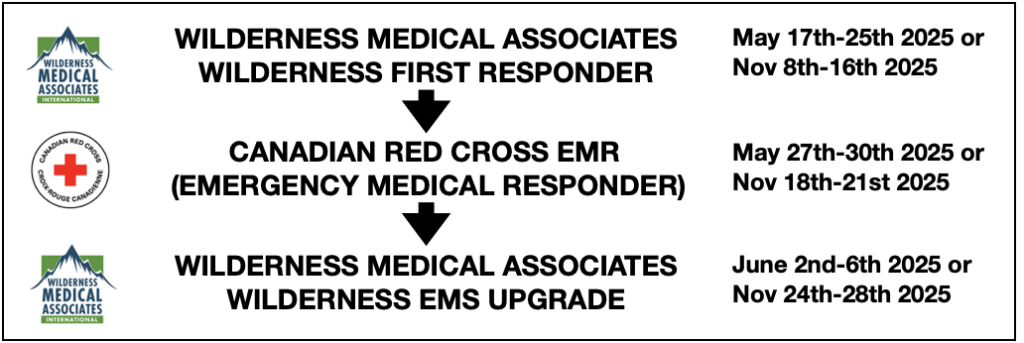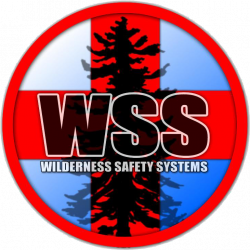Designed for those seeking a level of backcountry medical certification beyond the Wilderness First Responder, our Expedition Medic Program is comprised of 3 separate courses taught consecutively over 21 days allowing students to progress through the entire program in one shot, or join in at the appropriate course given your current level of valid certification and scope of practice. This program is ideal for individuals looking to work as primary healthcare providers on longer expeditions, in remote commercial/industrial contexts, and Wilderness SAR. The entire progression is taught at our comfortable lodge situated on 100 acres of pristine wilderness with a small private lake in Ontario’s Muskoka region.

WMA WILDERNESS FIRST RESPONDER
Prerequisite: None (16 Years of age minimum)
The Wilderness First Responder (WFR) course provides essential training in wilderness medicine, leadership, and critical thinking for professionals, leaders, and outdoor adventurers in outdoor, low-resource, and remote environments. This course model is taught over 8 days (80 hrs) and all course work and training is completed in-person through lectures, activities, simulations, and evening homework and review. During the course, students learn the essential principles and skills required to assess and manage medical problems in isolated and extreme environments for days or weeks if necessary.
CRC EMERGENCY MEDICAL RESPONDER
Prerequisite: First Responder or Wilderness First Responder
The Canadian Red Cross EMR course acts as a bridge from first responser to a professional medical certification for people seeking to work as emergency medical responders in Canada. The EMR is a common certification for individuals applying to Paramedic, Fire, and Police programs. This course is also the minimum prerequisite for our WEMS program.
Participants will learn and demonstrate all knowledge and skills needed to provide appropriate patient assessments, interventions, and on-going care, including the transportation of a patient to a healthcare facility. Course content may vary depending on jurisdictional requirements and, in addition, follows the National Occupational Competency Profiles (NOCP) as defined by the Paramedic Association of Canada. Participants will be engaged in dynamic training techniques including video, media presentations,
WMA WEMS UPGRADE
Prerequisite: Professional Medical Certification (read below)
WEMS helps providers apply their scope of practice in prehospital and remote settings. Participants include Advanced Practice Providers, Registered Nurses, EMTs/EMRs/Paramedics, SAR medical leaders, expedition medics, Disaster Medical Assistance Team members, military medics, and those preparing for the WP-C test. Interdisciplinary providers are intentionally mixed during performance tasks to promote future collaboration in the field.

